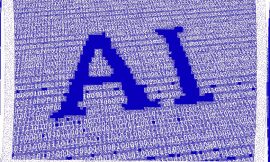As we all know that JEE MAIN is one of the toughest examinations, so, in order to qualify the same, the candidate needs to work hard and prepare from the correct material. The correct material for the preparation will include the syllabus, study plan, preparation strategy and recommended books. In this article, you will be able to get all the correct material for the preparation of JEE MAIN 2020. The most important thing, which is needed to prepare for any big examination like JEE MAIN is Self Study. If the candidate skips the self study, then there is no chance for one to crack the examination.
Check Here JEE Main 2020 Exam Dates, Syllabus, Eligibility, Application Form.
JEE MAIN 2020 Study Plan
The candidate will not face any problems while the examination if he/ she prepares a proper study plan. The below mentioned is the JEE 2020 Study Plan which is advised to the candidates:
- Within the first week of the preparation, the candidates must study for at least 2-3 hours.
- The candidates must make an individual schedule for the independent subjects. One must make sure to follow the routine he/ she has structured.
- Gradually increase the time of your study by 1-2 hours daily. The total time of studying should be at least 3-4 hours daily.
- Make notes of each and every thing involved in the syllabus. Doing this will make one know about his/ her strong and weak points.
- Carefully study every single topic and make sure not to skip any of the topic.
JEE MAIN Exam Pattern 2020
While doing the preparation of JEE MAIN 2020, the candidates must know the exam pattern of the same. The JEE MAIN Exam Pattern 2020 is laid down below:
| Particulars | Details |
| Number of Examination | 2 |
| Types of Questions | Paper-1: Objective
Paper-2: Subjective |
| Sections in the Examination | Paper-1: 3
Paper-2: 3 |
| Medium of Examination | Hindi & English (Candidates, who belong to Gujarat, Daman & Diu and Dadra & Nagar Haveli can take the examination in Gujarati) |
| Total No. Of Questions | Paper-1: 90
Paper-2: 82 |
| Maximum Marks | Paper-1: 360
Paper-2: 390 |
| Marking Scheme | 4 marks will be awarded for each correct answer.
1 mark will be deducted for each wrong answer. |
JEE MAIN Syllabus 2020
Before one starts to prepare for JEE MAIN 2020, the candidates must make sure that he/ she is clear with the syllabus of the examination. The below-mentioned list states about the JEE MAIN Syllabus 2020:
Paper-1
Physics:
- Units and Measurement
- Kinematics
- Laws of Motion
- Work, Energy and Power
- System of Particles
- Rotational Motion
- Mechanical Properties of Matter
- Gravitation
- Oscillation & Waves
- Thermal Properties of Matter
- Kinetic Theory of Gases
- Thermodynamics
Chemistry
- Mole Concept
- Atomic Structure
- Chemical Bonding
- State of Matter
- Thermochemistry & Thermodynamics
- Equillibirium
- S Block
- Principle of Organic & Hydrocarbons
- Environmental Chemistry
Mathematics
- Sets
- Quadratic Equation & Inequalities
- Differentiation and Integration
- Complex Numbers
- Permutation & Combination
- Probability
- Arithmetic & Geometric Progression
- Statistics
- 2-D Coordinate Geometry
- Straight Lines
- Circles
- Conic Sections
Paper-2
Mathematics
-
- Sets
- Relations and Functions
- Quadratic Equations
- Matrices and Determinants
- Complex Numbers
- Mathematical Induction
- Sequences and Series
- Limits
- Continuity and Differentiability
- Applications of Binomial Theorem
- Permutations and Combinations
- Integral Calculus
- Differential Equation
- Vector Algebra
- Co-ordinate Geometry
- Three Dimensional Geometry
- Trigonometry
- Probability
- Statistics
- Mathematical Reasoning.
Aptitude
1st Part
- Awareness of places
- Persons
- Texture and objects related to Architecture and building environment
- Buildings and materials
- Visualising 3D objects from 2D drawings
- Mental Ability (Visual, Numerical and Verbal)
- Visualising different sides of 3D objects
- Analytical Reasoning
2nd Part
- Three dimensional – perception
- Understanding and appreciation of scale and proportion of objects
- Contrast and harmony
- Drawing and designing of geometrical or abstract shapes and patterns in pencil
- Colour texture
- Building forms and elements
- Transformation of forms both 2 D and 3 D union
- Subtraction, rotation, development of surface & volumes
- Generation of Plan
- Creating 2D and 3D compositions using given shapes and forms
- Elevations and 3 D views of objects
- Sketching of scenes & activities from memory of urban scapes (public space, festivals, market, street scenes, recreational spaces, monuments, etc.)
- Landscape (gardens, trees, river fronts, jungles, plants etc.) and rural life.
AAT
Freehand Drawing
- A simple drawing depicting the whole object in its right form
- Surface texture
- Details of its components in suitable scale
- A correct location
- A drawing depicting the everyday objects one uses.
- Furniture
Geometrical Drawing
- Activities in geometrical drawing containing lines
- Triangles
- Angles
- Quadrilaterals
- Circles
- Polygons
- Elevation (side or front views) of simple solid objects like cones
- Prisms
- Splayed surface holders
- Cylinders
- Cubes
- Ariel view of Study Plan
Three-dimensional Perception
- Perception and appreciation of 3D forms with building elements
- Visualization through constituting objects in memory
- Volume colour and orientation
Imagination and Aesthetic Sensitivity
- Composition activity with given elements
- Creativity test through uncommon innovative check with recognizable objects
- Context mapping
- Logic of colour grouping.
Architectural Awareness
- General awareness and interest of famous architectural creations
JEE MAIN Recommended Books 2020
Many times, the candidates get confused between what to study and from where. The list, which is stated below mentions about the books from which the candidates can study. By studying the following mentioned books, the candidate will not be needing any other books:
Chemistry:
Organic Chemistry
| Name of the Books | Name of the Authors |
| Organic Chemistry | Morrison and Boyd |
| Organic Chemistry | Solomons and Fryhle |
| A Guidebook to Mechanism in Organic Chemistry | Peter Sykes |
Inorganic Chemistry
| Name of the Books | Name of the Authors |
| Concise Inorganic Chemistry | J. D. Lee |
| Textbook of Inorganic Chemistry for Competitions | OP Tondon |
Physical Chemistry
| Name of the Books | Name of the Authors |
| University Chemistry | Bruce Mahan |
| Modern Approach to Chemical Calculations | RC Mukherjee |
| Numerical Chemistry | P Bahadur |
Mathematics:
Calculus
| Name of the Authors | Name of the Books |
| Differential Calculus for IIT-JEE | Amit Agarwal |
| Integral Calculus for IIT-JEE | Amit Agarwal |
| Calculus and Analytic Geometry | Thomas and Finney |
| Problems in Calculus of One Variable | I. A. Maron |
Trigonometry, 2D & 3D Geometry, Vector Algebra
| Name of the Authors | Name of the Books |
| Coordinate Geometry for IIT-JEE | SK Goyal |
| Algebra for JEE Main & Advanced | Arihant Publication |
| Vectors & 3D Geometry | Arihant Publications |
| Trigonometry for JEE Main & Advanced | Arihant Publications |
| Course in Mathematics for IIT-JEE | TMH Publication |
| Higher Algebra 4th Edition | Hall and Knight |
PnC, Probability
| Name of the Books | Name of the Authors |
| Introduction to Probability Theory and Its Applications Vol I and II for JEE Main & Advanced | William Feller |
Physics:
Kinematics
| Name of the Books | Name of the Authors |
| Mechanics Part-1 & 2 | DC Pandey |
Waves & Thermodynamics
| Names of the Books | Name of the Authors |
| Understanding Physics for JEE Main & Advanced Waves & Thermodynamics | DC Pandey |
Electromagnetism
| Name of the Books | Name of the Authors |
| Understanding Physics Electricity and Magnetism | DC Pandey |
JEE MAIN 2020 Preparation Tips
The applicant, while preparing, must prepare as per some useful tips. Some of them are mentioned below:
- The applicant must kick start his/ her preparation from a tough subject.
- One must refer the NCERT books for the preparation.
- Solving the Mock Test Paper plays a great role in preparing for the examination. Doing this will make the candidate aware about the exam patter, types of questions asked in the examination, etc.
Candidates can get complete details about the JEE Main 2020 Exam from NextInCareer.com.



